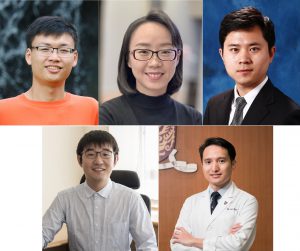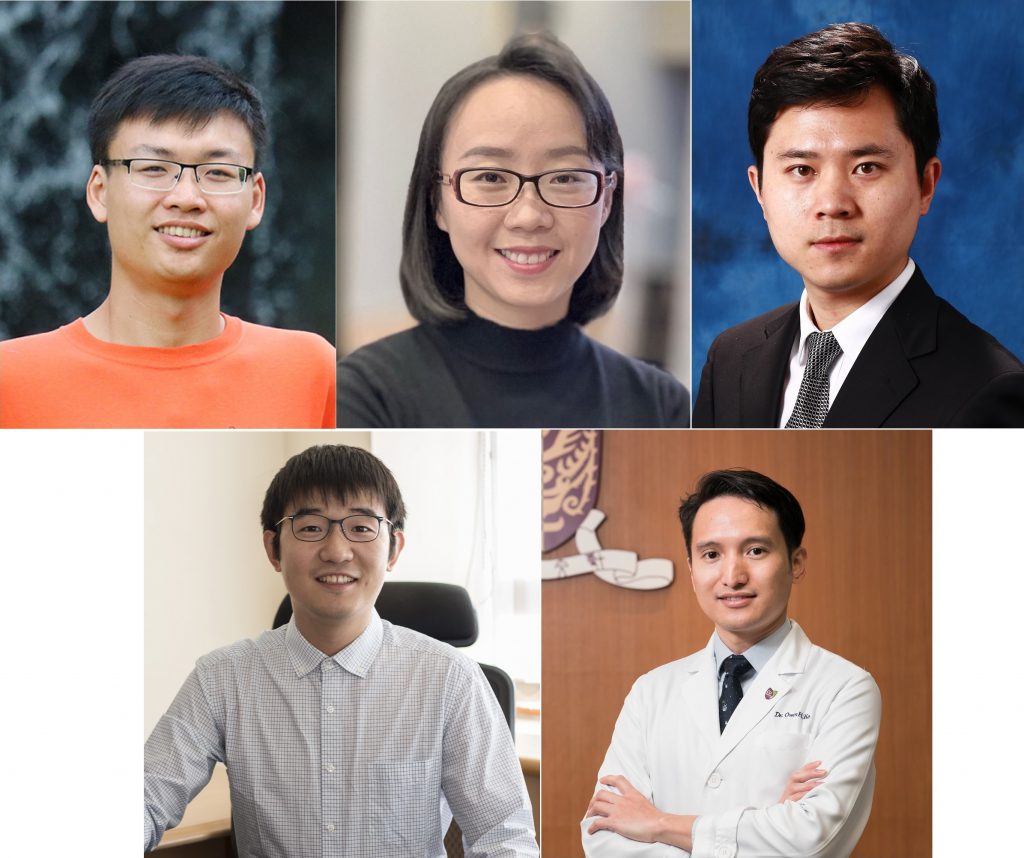CUHK
News Centre
Five CUHK Researchers Receive China’s Excellent Young Scientists Fund 2021
A record five young researchers from The Chinese University of Hong Kong (CUHK) have been awarded China’s Excellent Young Scientists Fund 2021.
The China’s Excellent Young Scientists Fund was first extended to Hong Kong and Macau in 2019, allowing young scientists from the two Special Administrative Regions who have demonstrated achievements in basic research to further conduct research in areas of their own choice, fostering intellectual development in academics.
Each of the awarded researchers will receive a funding of RMB1.6 million to directly support their scientific research projects in Hong Kong to a maximum period of three years. Details of the project are as follows:
|
Theme |
Researcher |
Project Description |
|
Earthquake behaviour at oceanic transform faults |
Assistant Professor, Earth System Science Programme |
Professor TAN’s research focuses on understanding the processes governing earthquakes and volcanic eruptions through analyzing geophysical data. This project will probe the interaction between different fault slip modes and how fault behaviour and properties vary through an earthquake cycle at oceanic transform faults. |
|
X-ray scattering Based Microstructure Studies of Photovoltaic Materials |
Associate Professor, Department of Physics |
For many years, Professor LU has been focusing on synchrotron X-ray scattering characterisation studies of the microstructure and morphology of organic and perovskite photovoltaic materials. This project will investigate the crystallisation mechanisms of lead-free perovskites, to develop versatile in situ X-ray scattering characterization methods for the crystallization process of lead-free perovskite optoelectronic materials and ultimately to achieve high-efficiency photovoltaic devices based on lead-free perovskites. |
|
Laser diagnostics for flow fields |
Associate Professor, Department of Mechanical and Automation Engineering |
Professor REN’s research focuses on mid-infrared absorption spectroscopy, high-temperature laser dispersion spectroscopy, multi-band two-line thermometry and shock tube chemical kinetics. This project aims to develop a novel combustion diagnostic technology based on cooperative laser absorption and dispersion spectroscopy for accurate and sensitive hypersonic wind tunnel measurements. The successful completion of this project will enable the non-intrusive measurement of high-enthalpy flows and understand the coupling mechanism between strong shock waves and thermochemical reactions. |
|
Game Theory and Mechanism Design |
Assistant Professor, Department of Economics |
Professor HE has been conducting research on game theory and mechanism design, with the focus mainly on the construction of theoretical models and equilibrium analysis in complex economic environments, as well as the implementation of corresponding equilibrium outcomes. This project will study various dynamic problems in economics and build new dynamic game models, which introduce several common features in real life (including payoff discontinuity, private information, and large-scale participants). The study aims to provide frameworks that incorporate all these features, develop new methods for dynamic analysis, and discuss the theoretical and empirical implications. |
|
Anti-aging effects of GLP-1R agonism and companion non-invasive diagnostics |
Assistant Professor, Department of Medicine and Therapeutics |
The central nervous system (CNS) has been found to have a pivotal programmatic role in the human aging process. Neurons and microglial cells in the brain may release factors whose signaling coordinates aging-related processes in the peripheral tissues. Manipulations of inflammatory and neuroendocrine pathways in neurons and microglial cells may also decelerate or accelerate the process of systemic aging. Dr. KO has revealed that glucagon-like peptide-1 receptor (GLP-1R) agonist improves age-related neurovascular dysfunction and reverses aging-associated transcriptomic signatures in multiple brain cell types. In this project, he will further explore the effects of GLP-1R agonism in preventing systemic aging, to broaden the insights on the underlying mechanisms and the clinical-translational perspective, through single-cell transcriptomic and phosphoproteomic profiling, and to develop blood DNA methylation markers for potential non-invasive monitoring of anti-aging therapeutic effects. |

(first row, from left to right) Prof. TAN Yen Joe, Assistant Professor, Earth System Science Programme; Prof. LU Xinhui, Associate Professor, Department of Physics; Prof. REN Wei, Associate Professor, Department of Mechanical and Automation Engineering;
(second row, from left to right) Prof. HE Wei, Assistant Professor, Department of Economics; Dr. KO Ho, Assistant Professor, Department of Medicine and Therapeutics.




